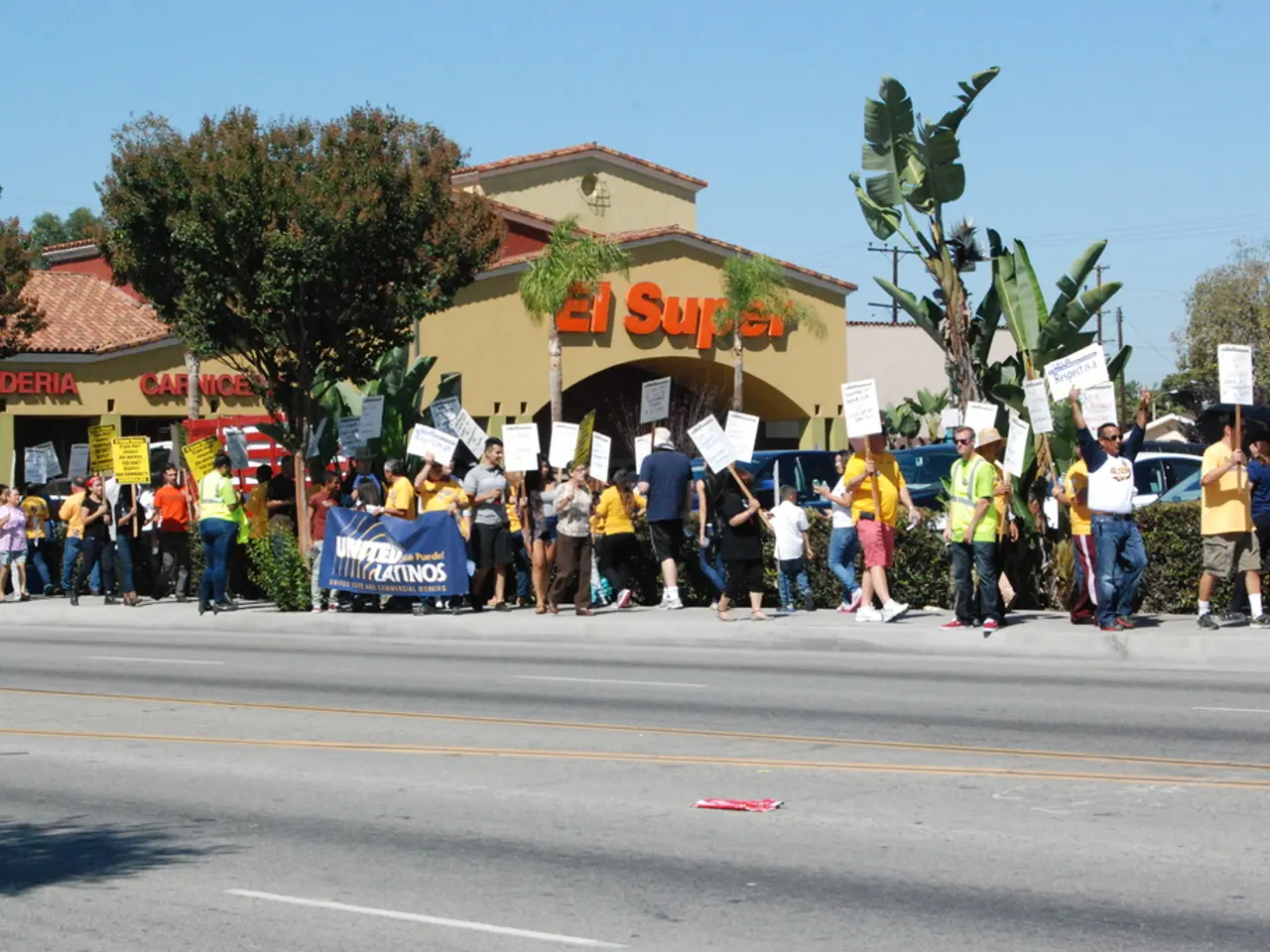Election's Overseeing Authority Already Made a Decision
In a society where democracy is challenged, the question of political imbalance has become a pressing issue. The interests of younger generations are often overlooked in parliamentary decision-making, with older generations holding more sway. This imbalance is evident in debates about conscription, short-sighted environmental policies, and pensions.
One proposed solution to this issue is lowering the voting age. The Berlin correspondent, Norbert Wallet, argues that this could be a corrective for the imbalance, particularly by lowering the voting age to 16. This idea is based on several arguments.
Firstly, young people are as knowledgeable and capable as older voters in understanding civics and making informed political decisions. Lowering the age would increase voter turnout, cultivating a lifelong habit of voting and potentially enhancing youth engagement in democracy. This could offset the dominance of older voters in elections.
Secondly, 16-year-olds should have a voice in decisions affecting their lives and futures. Many are already working, paying taxes, and are significantly impacted by government policies. Early enfranchisement can help reduce entrenched political imbalances by involving younger generations early, potentially shifting political dynamics over time.
However, there are arguments against lowering the voting age to 16. Concerns about maturity and responsibility suggest that many 16-year-olds may not be ready to participate thoughtfully and responsibly in elections. Questions about civic knowledge and experience also arise, with critics pointing to poor performance in civics education and less life experience compared to older voters.
Public opinion often reflects a majority view across ages opposing a voting age lower than 18, suggesting social and political resistance to such a change.
This tension between expanding democratic participation to youth as a corrective to older generations' dominance, and concerns about readiness and the quality of youth electoral participation, is a complex issue. Countries like the UK, Germany, Argentina, and Brazil have already lowered the voting age to 16, reflecting evolving approaches to this issue.
In conclusion, proponents argue that lowering the voting age empowers a currently underrepresented demographic impacted by political decisions and boosts democratic engagement, potentially rebalancing age-related political imbalances. Opponents emphasize maturity, experience, and prevailing public attitudes as reasons to maintain the voting age at 18. As the debate continues, it is clear that striking a balance between these opposing viewpoints is in the interest of a free society.
[1] Source for arguments for and against lowering the voting age to 16 [2] Source discussing countries that have lowered the voting age to 16 [3] Source discussing the impact of lowering the voting age to 16 on democracy and political imbalances.
- Policy-and-legislation discussions surrounding lowering the voting age to 16 are taking place in the realm of politics, as a potential solution to the observed imbalance in parliamentary decision-making that favors older generations.
- General-news outlets covering this topic have presented arguments both for and against the lowering of the voting age, citing aspects such as youth maturity, experience, and democratic rebalancing, as well as social and political resistance.






